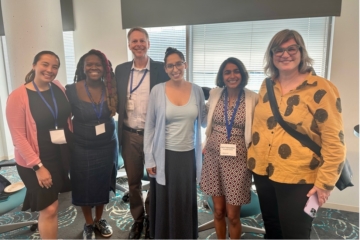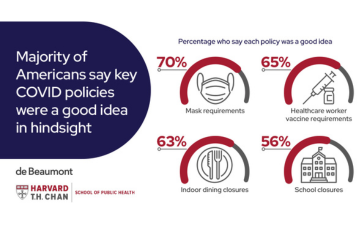
Fifteen cities and counties across the United States have been selected to participate in a Community of Practice and focused efforts to advance local-level policies supporting racial healing and public health. Through the Healing Through Policy: Pathways to Racial Justice initiative, jurisdictions participating in the Community of Practice will receive counsel from experts and peer support from other localities that share these aims, with the goal of collectively advancing the widespread adoption and implementation of policies that have shown positive impact on health and equity. The Community of Practice participants are:
- Chicago, Illinois
- Flint, Michigan (Genesee County)
- Hartford, Connecticut
- Lansing, Michigan (Ingham County)
- Martinsville, Virginia (Henry County)
- Public Health – Seattle & King County, Washington
In addition, nine jurisdictions will participate in a Solutions Sprint consisting of a focused set of workshops, facilitated local collaboration, and practical learning on advancing tenants’ right to legal counsel as a policy avenue to improving public health and equity. Participating jurisdictions include:
- Memphis, Tennessee
- Lawrence/Douglas County, Kansas
- Linn County, Iowa
- Madison/Dane County, Wisconsin
- Rhode Island (multiple local jurisdictions)
- Santa Clara County, California
Healing Through Policy supports cities, counties, and states in moving from commitment to action for health, racial equity, and justice, and is an initiative of the American Public Health Association (APHA), the de Beaumont Foundation, and the National Collaborative for Health Equity (NCHE), in collaboration with Results for America (RFA). The Solutions Sprint is led by RFA, in collaboration with the National Coalition for a Civil Right to Counsel (NCCRC), PolicyLink, and Human Impact Partners.
“American society is increasingly recognizing the impact of racism on the health of individuals and communities,” said NCHE Executive Director Gail C. Christopher, DN. “More than 250 states, cities, and counties have issued declarations proclaiming racism a public health crisis. This is a step in the right direction. But now, public officials, the private sector, and communities must work together to eliminate racism and improve health outcomes, especially for people of color who have suffered through decades of health inequities.”
In its first phase, Healing Through Policy identified a suite of local-level policies and practices that have been successfully implemented in at least one jurisdiction, show promise in improving health and racial equity, and meaningfully engage those who are impacted. Based on the Truth, Racial Healing, and Transformation frameworkTM, the policies and practices spanned five domains: narrative change, racial healing and relationship building, separation, law, and economy.
“The ability to shape policy is a powerful tool to reduce health inequities,” said APHA Executive Director Georges C. Benjamin, MD. “Acknowledging that these injustices exist is the first step. We now need to move from recognition to action by implementing policies that will make a difference in the lives of our community members for generations.”
“Healing Through Policy is a testament to the power of community and action at the local level in creating equitable and just futures for all people,” said de Beaumont Foundation President and CEO Brian C. Castrucci, DrPH. “We are honored to be supporting these communities as they learn from one other and work together to address centuries of racist policy, heal from these injustices, and thrive.”
“Policies such as right to counsel for tenants facing eviction help ensure more residents have stable, affordable homes, which is critical for their health and well-being,” said RFA Executive Vice President and Chief Impact Officer Lisa Morrison Butler. “We look forward to working with local leaders to show how the use of data and evidence can help them move from commitment to action in addressing systemic health and racial inequities, and creating thriving communities of opportunity for all.”




